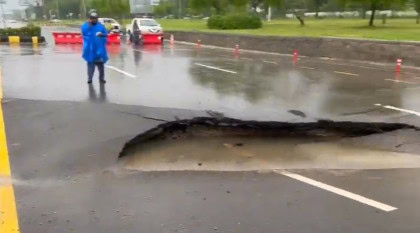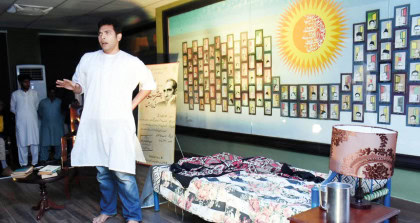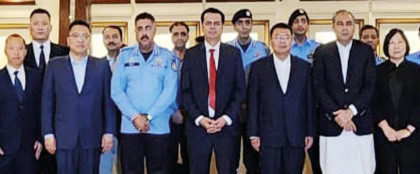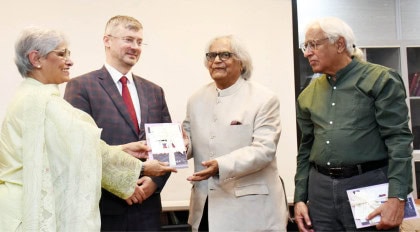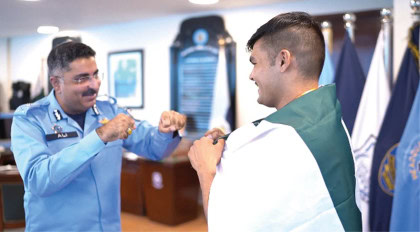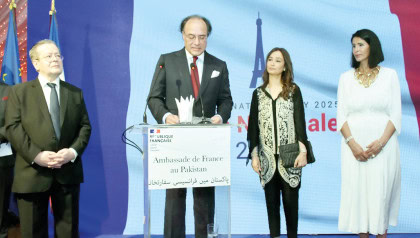Urban Bystander
In the Year of the Vanishing Bonus, somewhere between the rising cost of onions and the silent prayers of the salaried man, the City of Margallas prepares for the Great Festival of Sacrifice.
The air hangs heavy with anticipation and cow dung.
In the dusty sprawl of the I-15 cattle market, Abdul Manan, a modest government official from G-7/2 with a daughter who still believes her father can bring home a goat with pretty horns, stands bewildered among bleating price tags and trampled hopes.
His wife, meanwhile, has been exchanging notes with her cousin in Bahria Town, whose husband has already secured a bull so colossal it briefly appeared on Google Earth.
“I want the one that smiles,” the daughter whispers.
The goat in question, priced at Rs.150,000, now costs more than Abdul Manan’s entire salary, his quarterly misery allowance, and what remains of his faith in the fiscal calendar.
The local maulvi has launched his annual charm offensive.
After a year of terse salaams and incendiary sermons, he now greets Abdul Manan with benevolent nods with unearned familiarity, cooing, “Do remember us… when the time comes.
” A hide, which, for now, remained very much attached to a goat Abdul Manan had only dreamt of.
And dream he must.
In the cattle markets, goats stand like philosophers in resignation, tagged between Rs.130,000 and Rs.300,000.
Bulls chew at their price tags Rs.1.5 million and rising.
One camel, overheard somewhere near Sohan, whispered: “I cost more than your self-respect.
” “Rising feed costs,” mutter traders.
“Also, rising greed.”
Elsewhere, animals colonise sidewalks.
In Rawalpindi’s Dhoke Hassu, a cow took shelter in a beauty salon, two goats escaped from a Suzuki Bolan, and a sheep was seen attending a political rally before wandering off in search of actual grass and nuance.
The Capital Development Authority (CDA), determined not to be outdone by the chaos, has launched a “comprehensive cleanliness campaign”: 200,000 biodegradable bags, over 2,500 sanitation workers, 200 vehicles, and a control room tucked somewhere between confusion and hope.
Last year, these efforts collected 1,750 tons of animal waste, roughly equivalent to the combined weight of official press releases and misplaced confidence.
The ICT Police, too, is prepared for divine duty.
Over 1,000 officers will stand guard at six livestock markets, 982 will patrol Eidgahs and mosques, and 44 key points will see night patrols to prevent aerial firing, petty theft, or worse, relatives who arrive uninvited and expect mutton.
The police vow to maintain law and order, provided the goats cooperate.
But the irony lingers.
In a city of believers, where mosques outnumber malls, it is prayer that now needs protection.
“We’re here,” a constable mutters near Lal Masjid, “to make sure only safe, patriotic duas are uttered.
” One officer even claimed his metal detector beeped at a particularly rebellious supplication.
The Hide Wars have begun in earnest.
The city teems with collectors of all stripes, bearded and benevolent.
A famous cancer hospital’s roving vans are back, cloaked in compassion, fuelled by rumour.
Not all hides, they say, go to heal; some fund courtroom drama, others bankroll diplomatic sulks and rowdy ravens around the Middle Temple.
Ideological welfare outfits, low on transparency but high on acceleration, zip through roundabouts, promising reward, virtue, and WhatsApp receipts.
Meanwhile, transport limps beneath festivity.
Wagons zigzag with triple-fared urgency.
Vans calculate fares using algorithms of desperation.
Buses heading south now charge by heartbeat.
In one Rawalpindi bound coaster, a goat named Janu travelled under “child passenger” status.
He chewed a seat cover, a passenger’s sandals, and eventually his own ticket.
When asked about the fare, the driver shrugged: “These are not days for logic.
These are days for sacrifice.”
Yet through all this, love still blooms, quietly, desperately, beautifully.
A teenage boy is ironing his new kurta in the hallway.
A daughter plucks flower petals for Eid decoration.
Somewhere, an old man whispers a prayer, not for a heftier animal, but for peace, dignity, and a butcher who shows up on time.
And above it all, in the fading light of Islamabad’s charged skies, two winged chroniclers survey the city’s theatre.
Babloo, who heads Zone III Aerial Surveillance rustles his feathers atop a shuttered CCTV camera.
“So many cows,” he sighs, “so little humility.
” Nosy Mynah, perched dramatically on a tandoor chimney, hums, “They bring animals from far and wide, decorate them but can’t seem to slaughter a single ego.”
Babloo nods slowly, cooing, “Qurbani is in letting go off pride, not just the rope of a goat.”
And as the moon prepares to rise, knives are being sharpened, and hopes like hides await their fate.
Let the festival begin! Hide, seek, repeat.
(The writer can be reached at: bystanderinthecity@gmail.com)



